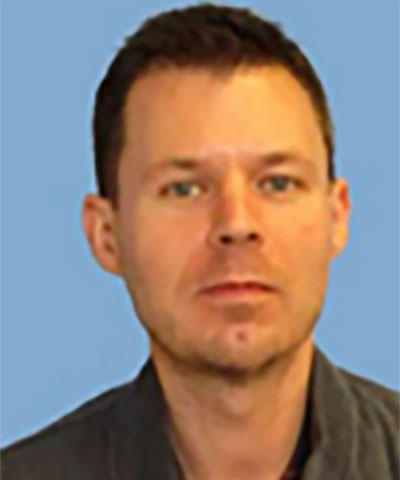Chemistry Laboratory Specialist Helps Department Go Virtual
By Kari Lindsey
September 28, 2020
Drexel University’s Department of Chemistry maintains high-tech instrumentation facilities and laboratories to support the research enterprises of faculty and students. The department’s laboratory specialist, Alan Shaffer, is integral to the success of those enterprises — particularly in the challenging shift to remote teaching and learning. We spoke with Shaffer to learn more about the function of his role in the chemistry department.

According to Shaffer, “The laboratory specialist position is a multidimensional position with a fluid and dynamically-changing workflow. That workflow changes as the experiments change, which is quite often during a normally operating quarter. The laboratory specialist manages the activities in the Disque Hall teaching laboratories. Additionally, there are administrative activities such as sourcing materials, ordering instructional supplies and managing people, inventories and safety policies/procedures.”
Due to the COVID-19 pandemic and stay-at-home orders, all university staff were forced to operate remotely. Shaffer adjusted to an entirely new way of working.
“It’s critical that we adapt to the new situation and become as elastic as possible. Over the course of the pandemic, I have worked with the department head on projects that have impacted programming and supported our department, and with other staff members on projects related to the operations of our department. In many ways, these valuable activities helped to enlarge our capacities to work collaboratively toward a common goal as a more cohesive team.”
Assisting students during this challenging time has been a priority for the laboratory specialist.
“One of my main functions has been to support students in the virtual landscape as the Student Support Coordinator,” he says. “I was the point person for student technical support related to virtual laboratory programming, as well as an interface between student and instructor. The role was critical for our students dispersed across the country and world. Being available to support these students, to get them caught up with coursework and schedules, was an important part of my workflow. We in the department want to have a reputation for being supportive to the educational endeavors of our students.”
Shaffer’s experience during the spring and summer terms has caused him to reflect on ways to improve the function and support of labs in future terms, whether they are remote or in person.
“The transition from in-person to virtual during the spring quarter was challenging and exhausting for many of us, in many unique ways. What I’ve experienced personally gives me encouragement as the fall quarter approaches and we consider ways to keep our programs running smoothly and ways to continue offering the high-quality educational experiences for which we are well known,” Shaffer says.
“Functioning as a cohesive team and meeting the educational needs of our student body are challenges associated with these changing circumstances. I am confident that we can continue to adapt and grow and continue to lean into these challenges to continue to provide quality programming.”
He continues, “We’ve taken what we’ve learned from the spring semester, applied it to the summer, and we’ll continue to adjust what we’re using and how we’re operating to ensure that students receive the high quality educational experiences that they’ve come to appreciate and expect.”
Thanks, Alan, for your excellent service to the Department of Chemistry!